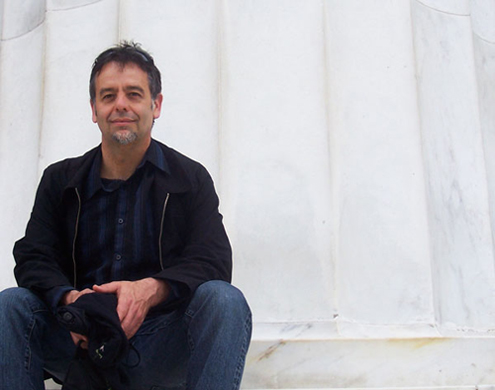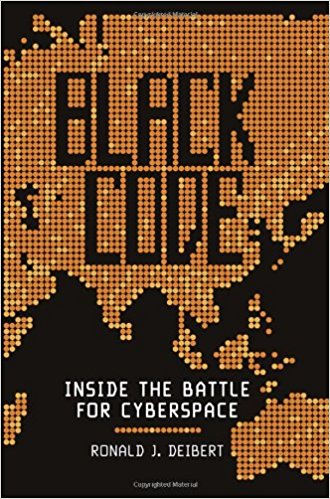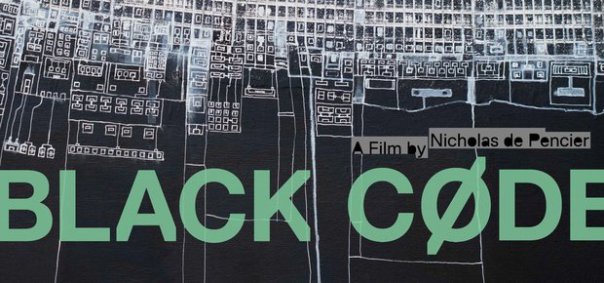
Prof. Ronald J. Deibert
 Nick de Pencier’s disturbing documentary Black Code based on Prof. Ronald J. Deibert’s book Black Code: Inside the Battle for Cyberspace looks at the elevated state of digital surveillance in the world today. Deibert, Director of the U of T’s Citizen Lab dedicated to researching and reporting on human rights abuses and global affairs associated with digital surveillance says governments, private companies and other actors may have easy access to our lives. The Lab searches for malware and exposed the Chinese cyber spy ring dubbed “GhostNet” that compromised high-level political, economic and media locations in 103 countries around the world.
Nick de Pencier’s disturbing documentary Black Code based on Prof. Ronald J. Deibert’s book Black Code: Inside the Battle for Cyberspace looks at the elevated state of digital surveillance in the world today. Deibert, Director of the U of T’s Citizen Lab dedicated to researching and reporting on human rights abuses and global affairs associated with digital surveillance says governments, private companies and other actors may have easy access to our lives. The Lab searches for malware and exposed the Chinese cyber spy ring dubbed “GhostNet” that compromised high-level political, economic and media locations in 103 countries around the world.
De Pencier’s doc shows us Tibetan monks electronically hiding their technological activity from China’s surveillance, Syrian citizens who are tortured for Facebook posts and Brazilian activists using social media to distribute real-time news and stories that will curl your hair from Pakistan and beyond.
The habit of posting pictures, our whereabouts, phone numbers, activities and contacts on social media, email and other electronic outlets leaves tracks that reveal information to any person or group with the means to access it, including “friendly” governments. Recent news stories about wiretapping remind us that threats on our privacy that sound straight out of the Cold War are with us every day. We spoke with Deibert about the alarming state of affairs.
[youtube url=”https://www.youtube.com/watch?v=BW2_2fOfdNI&t=38s” width=”500″ height=”300″]
Black Code looks at governments’ use of digital surveillance and the efforts to contain that threat. It doesn’t seem like it’s a battle we can win.
I wouldn’t be doing what I’m doing if I didn’t think it was a battle we couldn’t win. Some days it’s an uphill struggle. Issues we document are getting worse, like censorship. The techniques of government and other actors are more refined and there is little regulation around it. Governments are sliding back into authoritarianism and it’s an uphill struggle. A documentary like this raises awareness and underscores to people why we need to think about taking stewardship over it. Hope is a natural environment that is precious and valuable and it’s being degraded.
Were you careful what information you shared with the filmmakers?
Yes that was a big issue for Nick. He came into the project understanding there were sensitive topics we couldn’t have on camera, or people’s faces who were working on cases, so he would turn the camera off. He was very sensitive to that. Its Nicks work of art and his presentation and I think fortunately there were many things happening that we couldn’t film, I was very closely analysing Edward Snowden disclosures, before they published and we were not able to show that. It was heartbreaking.

Government spying on citizens isn’t new. What makes digital spying worse?
The bottom line is that were going through arguably the biggest change in communication technology in all of human history in an accelerated fashion. The printing press changed things but that was spread over generations and continued through Europe and worldwide. But computing took place in a span of decades and at the heart of it, turned our lives inside out. We are entrusting our information to third parties at a phenomenal rate, pictures of our private lives go to other organisations, government and private in an accelerating fashion. It underscores why today in this era of filmmaking that conversation can be the enemy of the state.
Like many people I’ve said “but I have nothing to hide”. Turns out that’s deeply flawed thinking, false security.
The issue confuses privacy with the abuse of power. Many of us maybe don’t mind being trapped by willingly submitting themselves, posting pictures of friends and family and where they are. It’s hard to make the case about what’s going on except the abuse of power if left unchecked. Governments have extraordinary surveillance capabilities, but weak or flawed or non-existent oversight.
Our first order of business is to do rigorous research that raises awareness off the issues as a public intellectual I’m advocating for human rights. We’re the CSI of human rights. We take on the hard tasks of identifying campaigns and write rigorous reports.
How are you funded?
I work with the Citizen Lab but I’m a tenured professor. We receive research grants from foundations the type you see in the credits of PBS shows. It’s very important to have the independence from government funding.
How much less privacy will we have as technology advances? How do you see the future?
If you want to get a sense of the future, look at Asia and China’s dynamic digital space, it teems with the most advanced technologies, the kind of controlled surveillance that sustains one party systems. It’s the dystopic future I fear very much when the vast majority of advancements come from countries like China with no long history of democracy or human liberties, a world not of our making.
I think that the space is very dynamic. New applications developed every day and each contains capacity to do things that put people at risk, and marketplace to assist government and corporations to analyse data emitted by all of us when he go about our daily lives. Compounding the mass surveillance machine is like the industrial complex, it’s hard to turn back. It’s very profitable for the government and private enterprise. You engage complementary interest in Google on one hand and the CIA on the other.
What kinds of people are hired to carry out surveillance? Hackers?
The term “hacker” has been confused and eroded over time to mean criminal behaviour when the original notion was very positive. Originally is meant being curious about technology, to open up technological devices and see what goes on beneath the surface; that’s the mentality we need to encourage, but we’re doing the opposite open my opinion. Jailbreaking, or breaking into your phone and looking around is good. At this very moment, we’re surrounded by technology but we are discouraging people from being curious about it. It’s a disaster when to me; it is something that should be promoted as active and ethical.
Do you avoid social media?
I’m not on Facebook. I made that decision a while back when they removed privacy protections. That was enough for me; it was my statement about it. Twitter is useful for research purposes to connect and get word out. Of course it’s something we are always wrestling with at the Citizens Lab. It’s our due diligence to look at high risk events with top security experts. When I travel it’s a communication ordeal!
What is happening with Edward Snowden now?
I can’t say. Russia and his lawyers had an important watershed around Obama leaving in hopes that he would be pardoned. But that is now at risk and he is used as a pawn in a game between the two. I worry about his future he seems to be able to speak regularly and communicate with people and he enjoys that. I had a one on one conversation with him.
[youtube url=”https://www.youtube.com/watch?v=l1Hy_OFkZ8s” width=”500″ height=”300″]
Is it discouraging sometimes?
The work I do is exciting and the team is extraordinarily capable and dedicated and we’re all on the same page. There is adrenaline that comes from doing work on the side of justice and many people who work in humanitarian and human rights feel the same way. It is sometimes horrible subject matter but you’re working for something profoundly important.
by Anne Brodie, BFCA BTJA AWFJ TFCA FIPRESCI